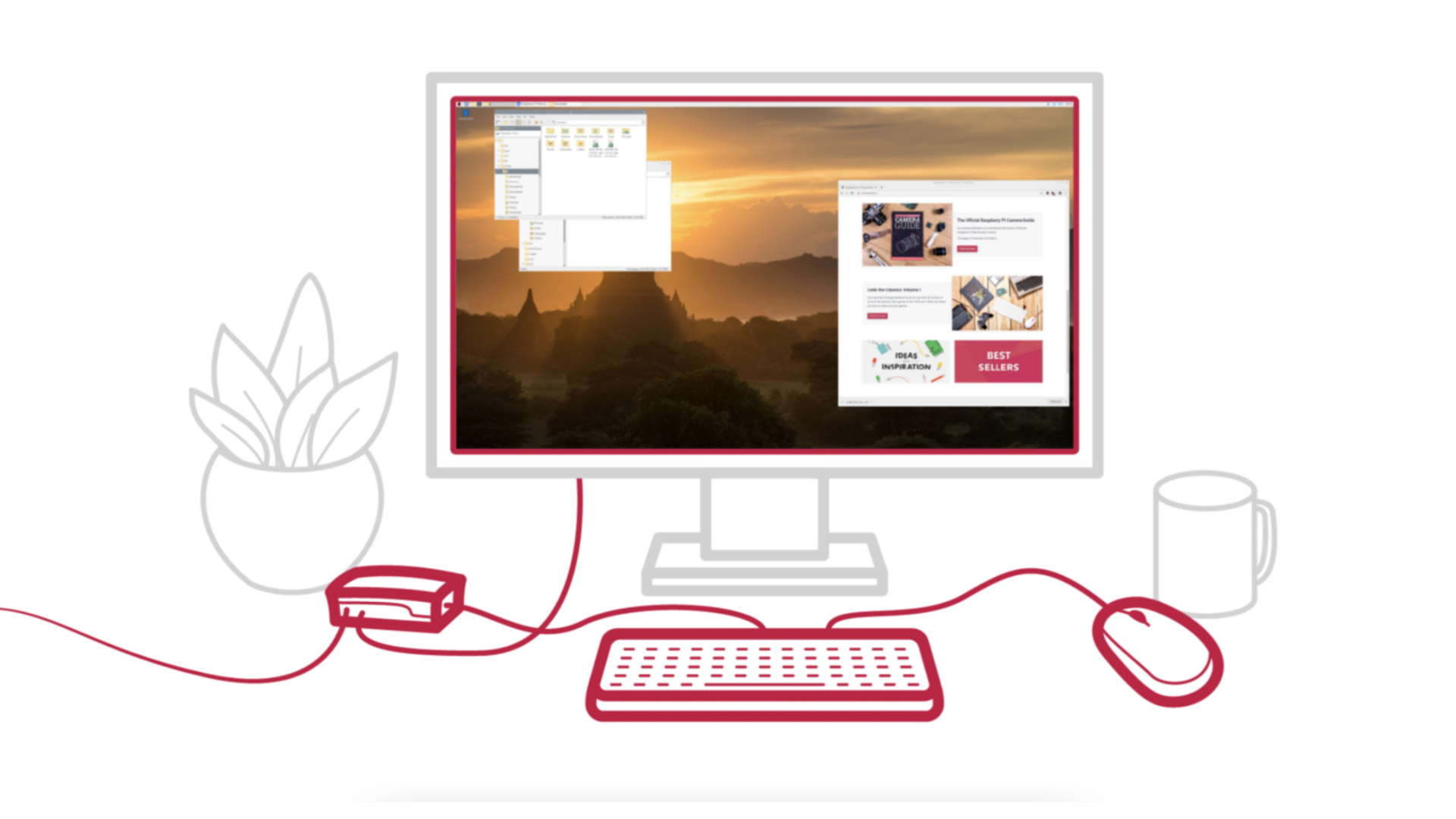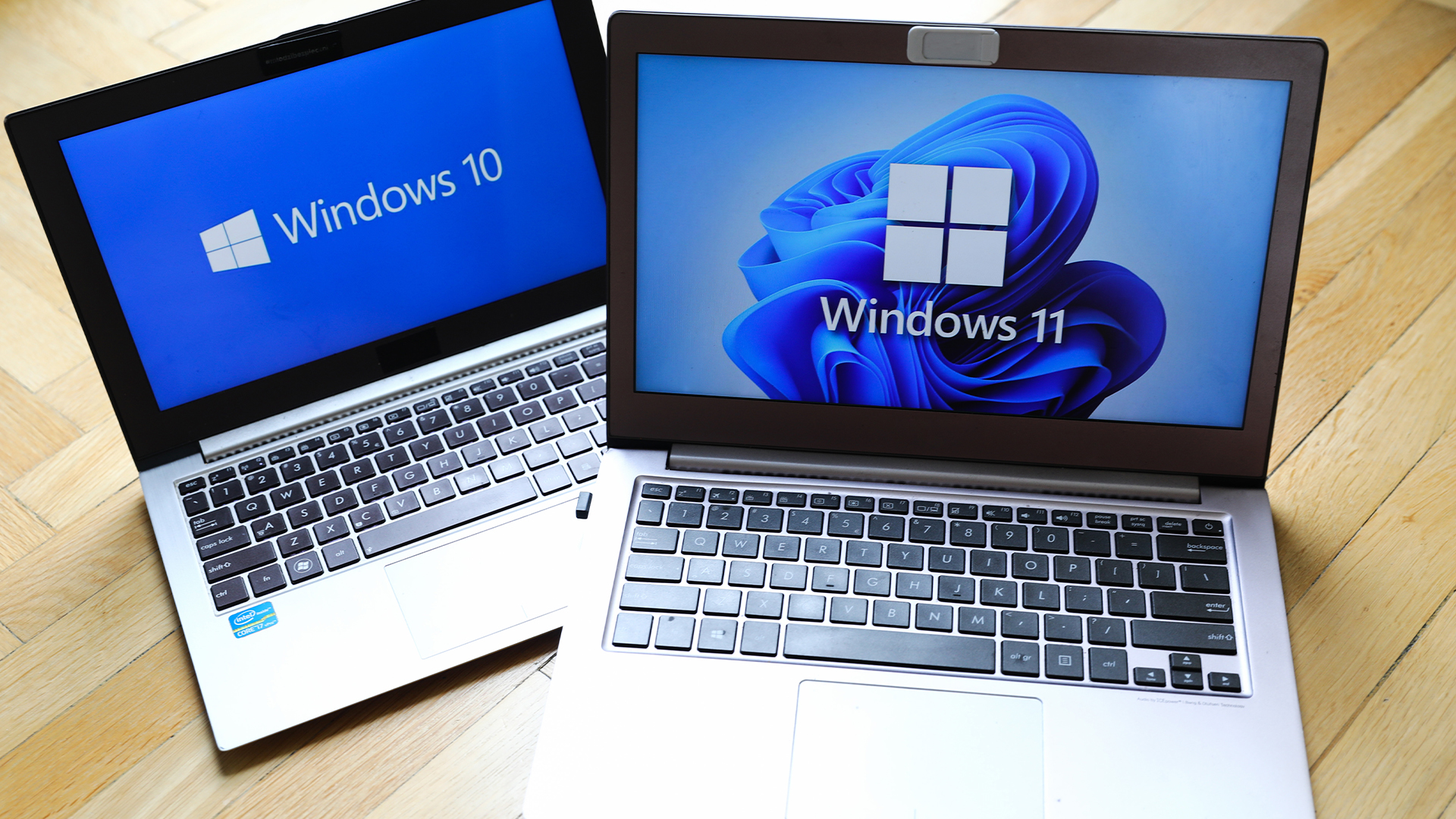Raspberry Pi OS finally gets a 64-bit release
After nearly two years in development and beta testing, the 64-bit version unlocks the Raspberry Pi's full 8GB memory


Raspberry Pi has announced the release of the first stable 64-bit version of Raspberry Pi OS after almost two years of development and beta testing.
The Debian-based operating system was first unveiled in 2020 alongside the 8GB Raspberry Pi 4 and even though 64-bit processor architectures go back to 2016's Raspberry Pi 3, the previous Raspbian OS was favoured due to backwards compatibility for older devices on 32-bit architectures.
Raspberry Pi: Top projects to try yourself A complete guide to Raspberry Pi OS Raspberry Pi 4 Model B review: Back, and better than ever
The decision to move to a 64-bit operating systems was largely driven by forward-looking compatibility concerns, said Gordon Hollingworth, director of software engineering at Raspberry Pi.
"Compatibility is a key concern: many closed-source applications are only available for arm64, and open-source ones aren’t fully optimised for the armhf port," he said.
Armhf port is a Debian port for arm processors that has support for the floating point unit - a feature useful for critical accuracy requirements in computing and digital signal processing.
Hollingworth went on to say there are some performance benefits to the arm64 instructions set but these, at the moment, are only visible in benchmarking tests. That said, the assumption is that these performance increases will be more evident in real-world applications in the future.

RELATED RESOURCE

The Total Economic Impact™ of IBM Spectrum Virtualize
Cost savings and business benefits enabled by storage built with IBMSpectrum Virtualize
A theoretical concern is that 32-bit architectures only allow the Raspberry Pi to address 4GB of memory. The Raspberry Pi 4 shipped with 8GB back in 2020 and so a 32-bit design would not be optimal to leverage the extra hardware's capabilities.
Sign up today and you will receive a free copy of our Future Focus 2025 report - the leading guidance on AI, cybersecurity and other IT challenges as per 700+ senior executives
The Raspberry Pi 4 has been able to access the full 8GB of its memory despite running on a 32-bit operating system since launch, using the Arm Large Physical Address Extension (LPAE), but processes are limited to a maximum of 3GB of memory. Raspberry Pi reserves the top 1GB of the virtual address for the kernel.
Hollingworth noted that very few applications for the Raspberry Pi require the full 8GB of memory in a single process, with Chromium being the most memory-intensive using one process per tab.
"But some use cases will benefit from being able to allocate the entire memory of an 8GB Raspberry Pi 4 from a single process," he added.
Those looking to use their Rasberry Pi as media units will run into a stumbling block when trying to access streaming services such as Netflix and Disney+ as the 64-bit version of Chromium, installed by default, has no version of the WidevineCDM library. Users will have to flicker between the 32-bit versions for streaming and back to 64-bit again after watching through terminal commands.

Connor Jones has been at the forefront of global cyber security news coverage for the past few years, breaking developments on major stories such as LockBit’s ransomware attack on Royal Mail International, and many others. He has also made sporadic appearances on the ITPro Podcast discussing topics from home desk setups all the way to hacking systems using prosthetic limbs. He has a master’s degree in Magazine Journalism from the University of Sheffield, and has previously written for the likes of Red Bull Esports and UNILAD tech during his career that started in 2015.
-
 AWS just quietly increased EC2 Capacity Block prices – here's what you need to know
AWS just quietly increased EC2 Capacity Block prices – here's what you need to knowNews The AWS price increases mean booking GPU capacity in advance just got more expensive
-
 Accenture acquires Faculty, poaches CEO in bid to drive client AI adoption
Accenture acquires Faculty, poaches CEO in bid to drive client AI adoptionNews The Faculty acquisition will help Accenture streamline AI adoption processes
-
 Windows 10 extended support costs could top $7 billion
Windows 10 extended support costs could top $7 billionNews Enterprises sticking with Windows 10 after the October deadline face huge costs
-
 Tiny11 review: Windows 11 with only 2GB of RAM
Tiny11 review: Windows 11 with only 2GB of RAMReview A version of Windows 11 for older machines that don't meet the full requirements
-
 Red Hat Enterprise Linux becomes foundational operating system for Cohesity Data Cloud
Red Hat Enterprise Linux becomes foundational operating system for Cohesity Data CloudNews New strategic partnership between Red Hat and Cohesity aims to drive innovation in the data security and management space
-
 Ubuntu shifts to four-week update cycle
Ubuntu shifts to four-week update cycleNews Critical fixes will also come every two weeks, mitigating the issues involved with releasing prompt patches on the old three-week cadence
-
 AlmaLinux follows Oracle in ditching RHEL compatibility
AlmaLinux follows Oracle in ditching RHEL compatibilityNews Application binary compatibility is now the aim with 1:1 now dropped
-
 How big is the Windows 10 cliff-edge?
How big is the Windows 10 cliff-edge?ITPro Network With some comparing the upcoming Windows 10 end of life to Windows XP, we ask members of the ITPro Network for their insight
-
 Everything you need to know about the latest Windows 11 updates - from bug fixes to brand-new features
Everything you need to know about the latest Windows 11 updates - from bug fixes to brand-new featuresNews Two new cumulative updates are on the way and will be installed automatically on Windows 10 and Windows 11 machines
-
 How to download a Windows 11 ISO file and perform a clean install
How to download a Windows 11 ISO file and perform a clean installTutorial Use a Windows 11 ISO to install the operating system afresh